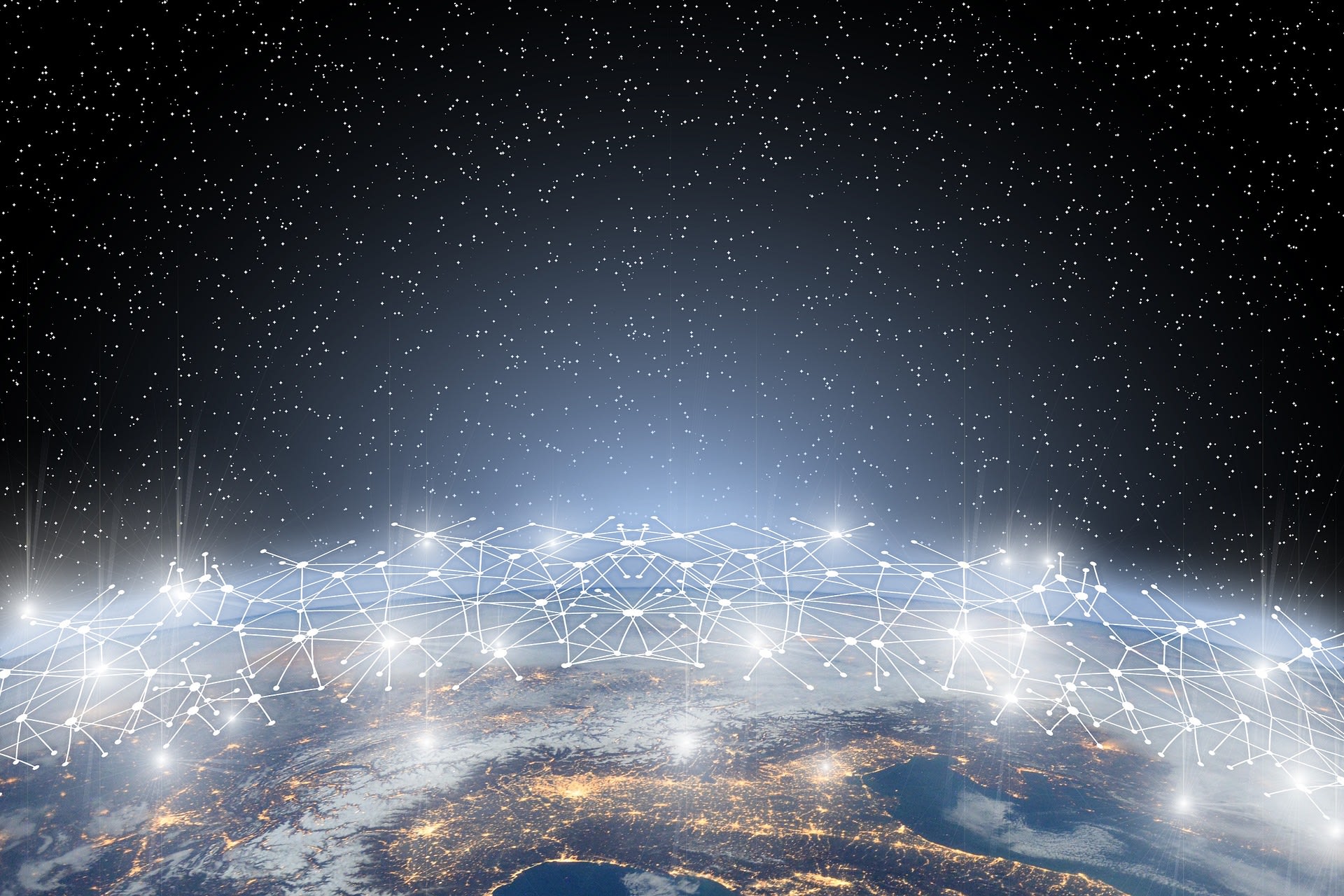Trends in Events Marketing in 2023
Kyle
Co-founder @ AdVentur.ai

The world of event marketing is ever-evolving, with new trends and innovations shaping the industry's landscape every year. In 2023, event marketers find themselves at a crucial juncture, as they adapt to changing circumstances and shifting consumer preferences. In this blog post, we will explore five key trends that are influencing the world of event marketing in 2023.
The rise (and fall) of Hybrid Events
Hybrid events, a blend of in-person and virtual elements, had been on the rise in recent years, largely due to the COVID-19 pandemic. They offered a way for event organizers to bridge the gap between physical and digital experiences. However, it appears that the enthusiasm for hybrid events has dwindled somewhat in 2023.
According to a Skift survey, only 20 percent of respondents expect to host a hybrid event in 2023, a stark contrast to the 79 percent reported in 2022. This decline may be attributed to several factors, including the easing of pandemic restrictions and the desire for more traditional in-person gatherings.
Nonetheless, hybrid events still hold considerable value for event marketers. They offer several benefits, including:
Wider Audience Reach: Hybrid events allow organizers to reach a broader audience, including those unable to attend in person due to geographical constraints or other reasons.
Flexibility: They are more flexible and adaptable than traditional in-person events, enabling participants to choose their preferred mode of attendance.
Cost-Effectiveness: Hybrid events can often be more cost-effective than fully in-person events, reducing expenses related to venues, travel, and accommodations.
Despite the dip in popularity, hybrid events remain a valuable tool in the event marketer's arsenal, especially for those looking to cater to diverse audiences.

The Use of Immersive Technologies
Immersive technologies, such as augmented reality (AR) and virtual reality (VR), are increasingly finding their place in the events industry. These technologies offer the potential to create engaging and unforgettable event experiences.
For example, AR can overlay digital information onto the real world, enhancing attendees' interactions with their surroundings. Meanwhile, VR can transport participants to entirely virtual environments, opening up new possibilities for immersive storytelling and brand engagement.

Incorporating immersive technologies into events can provide event marketers with a competitive edge, allowing them to create unique and memorable experiences that leave a lasting impression on attendees.
The Focus on Sustainability
Sustainability is an increasingly central concern for event marketers in 2023. Reducing the environmental impact of events and promoting social responsibility have become paramount objectives. Event marketers are employing various strategies to make their events more sustainable:
Sustainability is a growing concern in the world of event marketing, and it has taken center stage in 2023. Event marketers are adopting a range of strategies to make their events more eco-friendly and socially responsible.
Recycled Materials and Renewable Energy Sources
In the pursuit of sustainability, event planners are increasingly turning to recycled materials and renewable energy sources. This eco-conscious approach extends to various aspects of event planning and production:
image
Event Decor and Infrastructure: Utilizing recycled materials for event decor and infrastructure not only reduces waste but also showcases a commitment to environmental responsibility. From recycled banners to sustainable seating options, event planners are finding innovative ways to incorporate eco-friendly materials into their designs.
Energy Efficiency: Embracing renewable energy sources such as solar and wind power can significantly reduce the carbon footprint of events. Event venues are increasingly investing in energy-efficient lighting and HVAC systems to minimize energy consumption.
Food Waste Reduction
Food waste is a pressing global issue, and event planners are taking proactive steps to minimize it during events. To address this challenge, they are implementing measures such as:
Thoughtful Menu Planning: Event caterers are working closely with planners to create menus that reduce food waste. This includes offering a variety of portion sizes and incorporating creative ways to repurpose leftover food.
Donations to Local Charities: Instead of discarding excess food, event organizers are partnering with local charities to redistribute surplus meals to those in need. This not only reduces waste but also fosters a sense of social responsibility.
Offsetting Carbon Emissions
Recognizing the environmental impact of events, many event marketers are actively working to offset carbon emissions. This involves taking meaningful steps to compensate for the emissions generated during events:

Tree Planting Initiatives: One effective method is tree planting, which sequesters carbon dioxide from the atmosphere. Event organizers are collaborating with environmental organizations to plant trees in designated areas as part of their carbon offset programs.
Renewable Energy Investments: Some event planners are investing in renewable energy projects, such as wind farms or solar installations, as a way to balance the emissions associated with their events. These investments contribute to a more sustainable future.
Supporting Local Businesses and Communities
Sustainability extends beyond environmental concerns; it encompasses economic and social aspects as well. Event marketers are increasingly focusing on supporting local businesses and communities:
Local Sourcing: Event planners are sourcing products and services locally, reducing the carbon footprint associated with long-distance transportation. This approach also bolsters local economies and creates a sense of community.
Community Engagement: Collaborating with local communities can be mutually beneficial. Event marketers are partnering with community organizations for event promotion, fundraising, and volunteer opportunities, forging stronger connections between events and the areas in which they take place.
By embracing these sustainability practices, event marketers are not only minimizing the environmental impact of their events but also aligning with the values of eco-conscious attendees. Sustainability has become a hallmark of responsible event planning in 2023, leaving a positive and lasting impression on both the planet and event-goers.

Sustainability isn't just a buzzword; it's a commitment to ethical and environmentally conscious event practices that resonate with an increasingly eco-conscious audience.
The Use of Data and Analytics
Data and analytics are playing a more prominent role in event marketing strategies. Event marketers are leveraging data to make informed decisions, identify potential attendees, and assess the success of their marketing campaigns.
The benefits of data-driven event marketing are manifold:
- Targeted Marketing: Data helps identify and target potential attendees who are more likely to engage with the event.
- Performance Measurement: Event marketers can measure the success of their marketing campaigns, track attendee engagement, and optimize strategies for better results.
- Informed Decision-Making: Data-driven insights inform decisions about future events, helping organizers adapt to changing trends and preferences.

In a world where personalization and customization are key, data-driven strategies allow event marketers to tailor their approach to individual preferences and maximize the impact of their events.
The Rise of Personalization
Personalization has become a cornerstone of successful event marketing in 2023. Attendees no longer want cookie-cutter experiences; they crave events that cater to their unique interests and preferences.
Event marketers are achieving personalization by:
- Data-Driven Insights: Using data to understand attendees' interests and behaviors, allowing for tailored event experiences.
- Choice and Control: Offering attendees choices in their event experiences, such as selecting sessions or activities that align with their interests.
- Technology Integration: Utilizing technology to create interactive and engaging experiences that resonate with attendees on a personal level.

By embracing personalization, event marketers can foster deeper connections with attendees, leading to increased satisfaction and loyalty.
The Evolution of Event Technology
Event technology is evolving at a rapid pace, and event marketers must keep up with the latest advancements to enhance attendee experiences. In 2023, we see several exciting developments:
Contactless Check-In and Registration
The ongoing concern for health and safety has accelerated the adoption of contactless solutions in events. Contactless check-in and registration processes, often facilitated through mobile apps and QR codes, have become the new norm. These technologies streamline the entry process while minimizing physical contact.
AI-Powered Attendee Engagement
Artificial intelligence (AI) is transforming how event marketers engage with attendees. Chatbots and AI-driven personal assistants can provide real-time information, answer questions, and guide attendees throughout the event. This not only enhances the attendee experience but also frees up event staff for more critical tasks.
Enhanced Virtual Event Platforms
While the popularity of fully virtual events may have waned compared to the peak of the pandemic, virtual components remain essential for hybrid events. Virtual event platforms have improved, offering interactive features like networking lounges, gamification, and virtual exhibitor booths, making remote participation more engaging and valuable.
The Impact of Influencer Marketing on Events

Influencer marketing has become a powerful tool for event marketers in 2023. Collaborating with influencers can help expand reach, boost credibility, and generate buzz for events. Here's how influencers are shaping the events landscape:
Authentic Endorsements
Audiences are more discerning than ever, and they value authenticity. Influencers bring their unique perspectives and experiences, providing genuine endorsements of events and brands. Their followers trust their recommendations, making influencer partnerships a valuable asset for event marketers.
Targeted Reach
Influencers often have specific niches and demographics in their follower base. Event marketers can strategically choose influencers whose audiences align with their event's target demographic. This ensures that the event message reaches the right people.
Live Content Coverage
During events, influencers can provide real-time coverage through social media, live streaming, and behind-the-scenes content. This dynamic storytelling keeps attendees engaged and creates excitement, both on-site and online.
Navigating Post-Pandemic Challenges
While the events industry is recovering, it still faces challenges. Event marketers in 2023 must address these issues:
Health and Safety Protocols
Even as restrictions ease, health and safety remain paramount. Event marketers must continue to implement and communicate effective health protocols to ensure attendee comfort and compliance.
Budget Constraints
Many organizations are still recovering financially from the pandemic's impact. Event marketers must find creative ways to deliver memorable experiences while operating within tighter budgets.
Hybrid Event Management
Managing hybrid events requires a unique skill set. Event marketers need to master both in-person and virtual logistics, including technology integration and engagement strategies.
Future Trends to Watch
Looking ahead, there are several emerging trends that event marketers should keep an eye on:

Metaverse Integration
The concept of the metaverse, a digital, shared, and immersive universe, is gaining traction. Event marketers may soon find opportunities to host events within the metaverse, opening up entirely new avenues for engagement and interaction.
Sustainability Certification
As sustainability becomes more critical, event organizers may seek official certifications for eco-friendly events, showcasing their commitment to environmentally responsible practices.
Augmented Reality (AR) Enhanced Experiences
AR is not limited to event planning but can also be used during events. Expect to see AR-enhanced exhibits, scavenger hunts, and interactive elements becoming more prevalent.
Blockchain for Ticketing and Security

Blockchain technology offers secure and transparent solutions for ticketing, attendee verification, and data protection, reducing fraud and enhancing attendee trust.
In conclusion, the world of event marketing in 2023 is a dynamic and ever-evolving landscape. Staying abreast of these trends and challenges will empower event marketers to not only navigate the changing environment successfully but also create truly exceptional experiences for their attendees. By embracing technological innovations, influencer partnerships, and sustainability practices, event marketers can ensure that their events remain relevant and impactful in the years to come.
Conclusion
The landscape of event marketing is dynamic and continually evolving. In 2023, the industry is witnessing changes in the popularity of hybrid events, a surge in immersive technologies, a heightened focus on sustainability, increased reliance on data and analytics, and a greater emphasis on personalization.
Event marketers who stay attuned to these trends and adapt their strategies accordingly will be well-positioned to create successful and engaging events that resonate with diverse audiences in the ever-changing world of event marketing. As we move forward, the ability to innovate and incorporate these trends into event planning will be crucial for the industry's continued growth and success.
Improve your ROI with stunning automated campaigns. Be part of the journey!
What kind of creatives can I craft using AdVentur.ai?
Elevate your social media presence across platforms like Facebook, Instagram, Twitter, and LinkedIn with our versatile image creation toolkit. Whether you're designing posts, stories, ads, or seeking inspiration for custom graphics, AdVentur.ai is your go-to digital artist.
How can I ensure my creatives resonate with my brand identity?
We use your brand colours and fonts to generate on-brand creatives for your social media accounts.
Is it possible to use bespoke fonts in my designs?
Absolutely! Infuse your brand's unique voice into every design by incorporating your custom fonts, ensuring consistency across all your communications and building greater trust with your followers.
How do you use AI with my brand identity?
After entering your brand details and identity, our AI is trained on this information to ensure your content resonates with your brand.
What if I need to cancel my subscription?
While we'd hate to see you go, you have complete control over your subscription. Cancel anytime directly from the app's subscription section with just a click.
Product
Free Tools
Copyright © 2020-2024 Social Image Ltd. Company number 12541817 All rights reserved. 27 Old Gloucester Street, London, WC1N 3AX, UK



